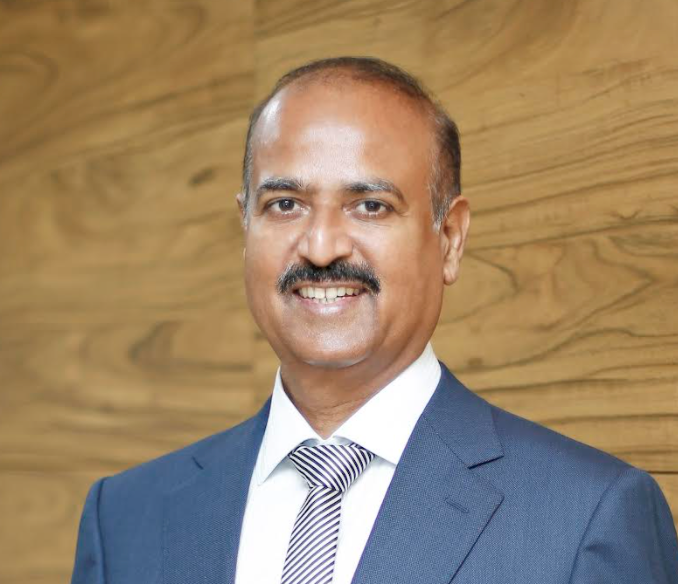The most trying times for you as a leader arises when you’re stuck in a no-man’s land of decision making and no one wants to take a call. The team looks up to you for direction while the stakeholders demand an equitable solution. The entire COVID episode is making us walk through a spectrum of negative human emotions that can be labelled as sadness, anger, disgust, contempt or fear. There’s uncertainty of an unchartered territory that awaits most of us, and we have little choice but to face it. But notice one thing—it is a global phenomenon, and as is with every crisis—it spares no one, neither the celebrities nor the paupers.
The lockdown induced lows are on an all-time high, and so is the stress associated with it. It can easily muddle all motivation of your people to endure and to deliver. The last thing during this whole phase that your team expects from you is a lack of emotional stability towards the whole situation and a lack of empathy towards their own personal crises. But is emotional stability and empathy that important? And if so, how do we cultivate it?
Let me tell you a story…
I remember being part of a cricket team where the captain was very abusive. He was elder to me, and a good player—the match winner. As a junior player, I admired him and his ways and tried to copy him in all that he would do. Not only did I pick up the game, but also picked up his abrasive leadership style. I was all proud, and being the captain of my own gully team, I would unleash the same pungency on to the other players whittling down their self-respect. Until one day, when my dad happened to hear it.
Instead of walking away, he stood there through the entire match. As I couldn’t shout or scream under his watch, the rest of the match proceeded peacefully. Once over, I decided to walk back with my dad. Not much of my decision, in fact, I would have done anything to avoid it, but I had no choice. We walked in silence before my dad told me that he led a big team, which comprised people both older and younger to him, who dealt with matters of consequences such as life-and-death; justice-and-injustice. He was a part of the police services.
“You know what acts as a differentiator as you climb up the ranks?” he asked.
“Talent, and the ‘Go-get-it, no matter what’ attitude,” I replied.
“This matters at the entry state. In the initial part of your career. After a certain point, all your counterparts have both the will and the wits to make it to the next step,” he told.
I remained silent. What else mattered, I wondered!
“After a certain point in your career graph, it matters how emotionally stable you are, how good you are at treating others with respect, and how good you are at gauging the other person’s pains, problems and limitations, and how well you can address them.”
I don’t remember changing overnight because of his words. Growing up, I was mostly a highly ambitious, angry young man. Domination indeed had a charisma about it. But as I climbed up the ladder, I started to understand the depths of what he had told me. I started to notice how leaders and mentors who were emotionally stable and empathetic towards their team members had a positively reinforcing effect, as compared to ones with a condescending and offensive outlook. This is what sets leaders apart from the crowd. This is what leadership books call the Emotional Quotient or EQ.
And so, I went back to him and asked him how I could learn it too. He asked me to learn it by practising.
“You learn to ride a bike by riding it and not merely watching others do it or by listening to a sermon on it,” he said. “Practise it, till you learn how to do it. There will be falls, there will be failures, but it is worth cultivating, it is worth being a good human, especially during the trying times.”
So, I started on the journey of consciously cultivating this into my life. While EQ stands for the ability to understand and manage your own emotions, the “Empathy quotient” helps you to recognise the emotions of those around you. For both to develop you need to understand the basics of “Who am I” and “What are they going through”.
“Who am I”
Self-awareness is the core of a positive transformation and scoring a high EQ. Not only does it make you privy to your strengths and weaknesses, but also to your emotional reactions towards your superiorities and your insecurities. Once you have understood these through self-scrutiny and external feedback, and labelled them up well, you become more attuned to your emotional reactions, and hence learn to manage them well. It then becomes easier for you to “practise the pause” thus easing your reaction into a response. Leaders who lack this awareness are often the ones who find it difficult to keep their impulses in check.
“What are they going through”
While a leader should be self-aware, s/he should also be adept in reading a room. It helps you understand what emotions others are going through. Here comes the empathy quotient. Leaders who excel in this, practise empathy. A leader rich in empathy quotient can communicate and collaborate more effectively with his/her peers.
Respect begets respect just as contempt breeds anger. Cultivating a good empathy quotient hence will help you gain the respect and admiration of your teams and peers—one which makes them deliver through even their bad days. Great leaders are listeners, they don’t just hear to respond, they listen to understand and assimilate.
If one can cultivate these habits, they can always make others focus on the positive elements in life and take away only good learnings even from the direst failure or negative situation. They can transform mindsets of people around them and light up the darkest time with positivity.
Of course, mastering this is not a joke and neither do I claim to be a master at it. You learn, you practise and you grow each day. Especially when you are equally scared, confused and burnt out; when you want to scream to the other to put on the armour because you yourself are fighting the good fight. It is exactly for these moments that you need to practise it. Otherwise these emotional or empathy quotients are merely words, merely dream states. If mastered, you’ll see that this capacity will open windows through which you can make a difference to people’s lives by sharing time, words and even vulnerabilities.
Try it because this is what it’ll take to extend hope, to heal and to rebuild—an ailing world full of scared and doubtful minds.


